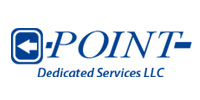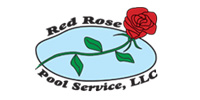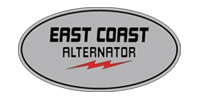 SEO (Search Engine Optimization) FAQ’s
SEO (Search Engine Optimization) FAQ’s
We’ve been answering our clients SEO questions for over 10 years! Here are a few of the most common SEO questions we answer. Stop back, we’ll be posting additional SEO FAQ’s here frequently.
How can you help to get links to your website!
Link popularity is the primary “off page” ranking factor used by search engines. Links provide an independent (third party) indication to the search engines, what your website is about. The total quantity of links (along with other measures) indicates the relevant quality of your website, compared to competitors. Based on the competition level for specific key phrases we can estimate the number of links needed to compete.
The clickable portion of a link is known as the link anchor. The anchor text of each link can (and should) be relevant for a target key phrase in your search engine optimization effort. The labor involved to increase link popularity to a competitive level is determined by the number of key phrases and level of competition (in search) for each phrase.
We research, find, evaluate and contact quality link partner webmasters with the objective of adding new links.
This service is offered on an “as needed basis”. In the event your site requires a link building campaign to reach the desired goals, an estimate of the cost of monthly link campaign will accompany the “website and target market review”.
Yes, SEO does still work and will always work. Over the last few years with Google making large strides in their efforts to fight web spam with their 2011 Panda update and 2012 Penguin updates which along with removing many a spamy website from top rankings additionally sank a number of better quality sites this question has occurred time and time again.
Many think that there is no point to optimize your website for the search engines, that no matter what you do Google will eventually penalize and sink your site if you even whisper the words search engine optimization. These rumors are unfortunate and untrue. Search engine optimization is still and always will be viable, because true search engine optimization stays within the guidelines published but he search engines, including Google.
Search engine optimization is simply making your website the best it can be for the search phrases relevant to your target market, it has nothing to do with exploiting holes in Google’s algorithm. Nothing to do with cheating or spamming the search engines, those are what are referred to as black hat SEO techniques. Black hat search engine optimization is doomed and it has always been doomed. Yes some have gained in the short term only to lose as soon as the search engines learn to detect their latest scam.
White hat SEO (search engine optimization) is not only acceptable to the search engines, they encourage it with online videos and tutorials to teach the correct and safe way to optimize the content of your website so it will rank highly in their search results. Google webmaster tools and Google Analytics have sections specifically for search engine optimization.
Update July 5, 2012: Matt Cutts (Googles Head of Web SPAM and Google’s defacto voice to the public) says “Don’t write the epitath for links just yet” watch the video here.
Yes, Links are still important! In fact they are the most important indirect factor that has an impact on how your website will rank. Every so often there will be a news report sounding the death toll for links and link building; it has been this way since our start in 2002. Despite the news links are alive and well and more important than ever.
What has changed with regard to links is the difficulty in acquiring new links, In years past most websites would have a page instructing would be link partners about how they could get a link. Years have passed and today most websites no longer accept link requests. They don’t have Add URL request form pages and its downright difficult, time consuming g and expensive to get links.
The latest news on the link building front was Google’s Penguin algorithm update launched on April 24th, 2012 whose chief targets were websites employing web Spam tactics which violated their webmaster guidelines, including those participating in link building schemes.
Since Google launched its search engine website including its page rank generating algorithm back in 1997 which included a heavy mathematical influence from the count of links pointing at every website on the internet, Spammers have been inventing ways to gain link popularity and scam Google. Almost as quickly as these linking schemes are created Google has continuously reinforced their algorithm to detect and defeat them.
Google has been successful in defeating allot of SPAM websites through the years, they have also succeeded in putting the fear of God, err a Google, into many an honest and non Spam webmaster. Today many website owners live in such fear of violating Google’s guidelines they won’t even say the words “link exchange” for fear their own website will be penalized and sent to wither away in the search engines deep dark pages beyond where the average searcher bothers to tread.
It’s a shame really because the good old fashioned link exchange was a simple way that real live people evaluated the quality of other websites whilst considering exchanging links with them. If Google has truly succeeded in killing the real life manual link exchange, they may have also killed the source of their high quality results.
Google’s trust factor is the variable in their algorithm that equates to how much they trust your website, your domain name and even your hosting provider. Yes, your domain name and host are important and you need to have both a domain name and host with trustworthy histories. Trust factor was added to Google’s algorithm as a tool in their effort to combat the evils of web spammers who historically were able to launch new SPAM websites faster than Google was able to find them and black list them from their search results.
When trust factor was first added it was often referred to as Google’s sandbox effect. Essentially when a new website was launched Google would spider the website and then banish it to low rankings for a number of months, only allowing it to rise in search to its appropriate height after proving it was not just a Johnny come lately, SPAM effort. Essentially causing a delay between launch and rankings prevents web spammers’ from reacting so quickly to each move Google makes and forces them to build more quality into their websites.
Trust factor doesn’t just impact web spammers; it delays the rankings of all websites. Whenever Google recognizes a significant change to a website the alarm goes off back at “Google Central HQ” and the rankings of the website in question are automatically lowered. Google then maintains these lower rankings until enough time has passed for the website to prove it is once more stable and can be trusted. The amount of time is not known and appears to be based on a number of factors including the age and past history of the domain name hosting the website and the age and past history of the webs server hosting the website. For example, does the server host any SPAM websites? Has it hosted SPAM websites in the past? Has the domain name ever been penalized for containing SPAM?
Trust factor isn’t only used in dynamic situations when changes occur to websites, it’s also believed to be amongst the over 200 factors Google uses to constantly determine the rankings in their search results. If two websites are essentially equal in all ways and one of the two is addressed using a domain name that was previously used in SPAM efforts, the other website will rank more highly. If two websites are essentially the same and one is hosted by a server know to host (or have hosted) SPAM websites, the other will rank higher.
You’ll know if your domain name has been penalized for SPAM, one day it’s near the top and all of sudden the next day your site drops like a rock, along with your Google referred traffic.
Trust factor is a prime reason we recommend you host with us. We carefully select our clients. We don’t work with spammers, nor do we host SPAM websites. We know every client we host and have full control over our servers. We don’t host SPAMMY websites, nor have we ever!
Getting links to your website can easily be related to real world networking in the business world. Think about it you go to a networking event and the first to greet you are probably your suppliers. Your suppliers have a vested interest in your success; you do more business, they do more. They’ll be happy to introduce you to their other clients, hoping perhaps for a little cross pollination. So you ask, where do I start to get links, you start with your suppliers.
Not only are links from your suppliers amongst the easiest to request they are also high quality links due to the on topic nature of your businesses. Since the earliest days of Google with their “link counting and Page rank algorithm” SEO’s have proven that on topic links from websites relevant to yours (meaning in the same or similar businesses or website theme topic) have the highest value. They are the most relevant and link relevance is a key factor in Google’s algorithm to this day.
Depending on the mature of your business your clients may have websites. Can you ask your clients for a link to your website? Of course you can. Your company is a top performing supplier of goods and or services and you have lots of satisfied clients. Each person in your organization who has direct contact with clients needs to ready to make a link request to your clients who have websites. It’s probably not the best idea to cold call your clients for website links; however upon completion and follow up on any sale, while the client is commending your rep for delivering as promised, going above and beyond there request and expectations… that’s a great opportunity for your rep to make the request by saying “by the way… we’re looking to add links to our website would you be willing to add a link to our website from yours…”. You’ll find that many of your clients have special places set aside on their website where they list and have links to their primary suppliers. Many clients will be happy to give you a link as a way of thanking you for great service and insurance towards your future support.
Ask your friends and family for links. With the widespread use of social media you can simply ask through these channels if any friends have websites or if they can ask their employers if they would be open to linking to your website.
Finally if you make your website a valuable asset your website will collect links for you while you sleep. That’s right if you’re website offers something of value, maybe a tutorial, a how-to, a parts list, diagrams, drawings or great photographs you can actually grow your link profile without solicitation.
Follow these recommendations and your website will grow its link popularity naturally, just as Google had seen websites were growing before they launched the most popular search engine today which initially was able to outperform all other search engines simply by ordering their search results based on the link popularity of the websites they returned in search results!
Your sparkling new website recently went live. It looks beautiful and presents you in the professional manner you really wanted. The site is even professionally optimized by a search engine optimization specialist, however you search and search and don’t find your new beauty anywhere for the phrases you want to be found for. All this great work and… nothing?
Being fond for desired search phrases goes well beyond the search engine optimization of your website. Listings and rankings are determined by the search engines algorithms and their 200 plus evaluation factors they apply to every website. Ok, but your website has been designed not to be just a thing of beauty but also to please the search engines algos, so it should be at the top, right?
The search engines are far from instantaneous. Your new site which contains all of the appropriate content and key phrases can take weeks and sometimes months for the search engines to spider each page and update their indexes to reflect the artistry that your website contains.
Here’s why: The search engines don’t search live on the internet, they aren’t truly live searches of every website in the world. Search engines are large banks of computers that store the data that they accumulate and update it over time as they spider the internet and process every page through their algorithms. These banks of computers are called data centers and are located around the world. As of October 2011 Google was reported to have 40 data centers located in various countries around the globe. Combined, Google’s data centers are estimated to contain close to 1 billion discreet servers. And in 2008 Google reported that it had indexed 1 trillion discreet URLs. Add this all up and we can begin to understand the internet is huge. So it takes a considerable amount of time to evaluate, then reevaluate all of the websites that make up the internet, time and time again.
When you do a search Google doesn’t go out to the web to find results, they go to their data center and look at the historic data they have saved and generate their search results from that data. Their search results then make the direct connection (link) to all of the websites.
The work recently completed to improve the reach of your site in search may be 100% correct and on target to make sure your site is relevant for all of the searches important to you. In time Google and Bing will discover your newly updated masterpiece and list it appropriately in their data center directories.
Once your website is listed for the desired phrases it may rank number 1, or perhaps be down the page, or god forbid on page two or three depending on the competition level in your specific target market. When a newly optimized site does not instantly rise to the top the reasons can be many including the websites link popularity and trust factor.
Learn more about Link popularity and trust factor using these links:
What is link popularity and why is it important to the rankings of my website?
What is trust factor and how does it affect the search engine rankings of my website?

































